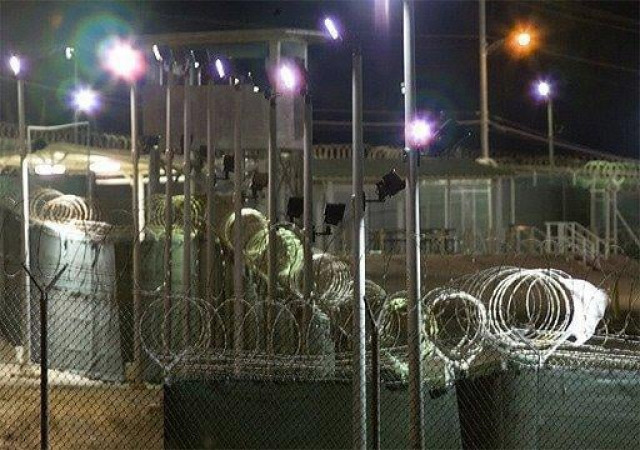Europeans urged to match words with action on Guantanamo
A dozen European countries from Ireland to Albania have accepted more than 50 former inmates.

European leaders feted US President Barack Obama when he took office in 2009 with the pledge to close the detention facility on Cuba, which they had long condemned for holding terror suspects for years without charge or trial.
"The Europeans gave the impression that they would be ready to help President Obama resolve the problem and welcome a certain number of prisoners who could be freed from Guantanamo," said Patrick Baudouin, honorary chairman of the International Federation of Human Rights (FIDH).
"And yet in reality they have proved very reluctant. They are in no rush to get Obama to empty Guantanamo, or to help him."
A dozen European countries from Ireland to Albania have accepted more than 50 former inmates who are either citizens, former residents or, in many cases, cannot be returned to their home countries for fear of ill-treatment.
Britain is home to one of the largest numbers, accepting at least 14 people including citizen Moazzam Begg, who used his newfound freedom to travel Europe trying to find homes for others held at Guantanamo.
"The biggest problem that we found when talking to the foreign ministries of countries was: 'Well, this is an American problem. If America has not taken them, why should we?" Begg said.
"The reality is that they have been tortured.”
"Isn't it about time that the language is changed, that they are not called terrorist suspects any more? And when that's done, the resettlement process will be much easier."
A number of former inmates launched legal action alleging the complicity of British intelligence agents in their treatment, prompting the government in 2010 to settle claims with 16 people and launch a formal inquiry.
Spain has also investigated complaints made by former inmates; the National Court agreed last year to look at allegations made by Morocco-born resident Lahcen Ikassrien that he was tortured while at Guantanamo.
However, many of those who have made a new home in Europe have tried to keep their heads down, as they are still viewed with deep suspicion.
Italy accepted two Tunisians but expelled one of them, Abdel Ben Mabrouk, for allegedly planning to bomb Milan's cathedral. The other, Ben Mohamed Riadh Nasri, was jailed for trying to recruit militants to fight abroad.
Mehdi Ghezali, a 32-year-old Swedish citizen captured in Pakistan and held at Guantanamo for two and a half years, was arrested in 2009 in Pakistan with 11 others, suspected of having ties to al Qaeda.
He and the others were released and never charged with any offence.
Clive Stafford Smith, the director of legal charity Reprieve, insisted none of those released to Britain had done anything wrong since their return, but said Washington did not make it easy by continually stressing their guilt.
European governments "see the potential for headlines from right-wing press that these guys are terrorists, but they don't see the enormous potential of positive reconciliation it counts when a country does the right thing".
Some former inmates have forged a new life for themselves.
Murat Kurnaz, a 29-year-old Turk who returned to Germany, has remarried, had a daughter and found a job as a youth worker.
But others have found it much harder.
Boudellaa Hadj, one of three Algerians accepted by Bosnia, told AFP that despite holding a Bosnian passport, suspicions about his time in Guantanamo had made it impossible to find work since returning in December 2008.
"I knocked on the doors of dozens of businesses but as soon as they hear of my past, it's 'no'. Even Arabs who have businesses here refuse me, just to not have any trouble," said the 47-year-old father of seven.
Rob Freer, US researcher for Amnesty International, said the Europeans' contribution to bringing an end to Guantanamo "is to be welcomed, even if perhaps some could have done more".
"But it should not be forgotten that the USA carries ongoing primary responsibility for the Guantanamo detentions," he said.



















COMMENTS
Comments are moderated and generally will be posted if they are on-topic and not abusive.
For more information, please see our Comments FAQ